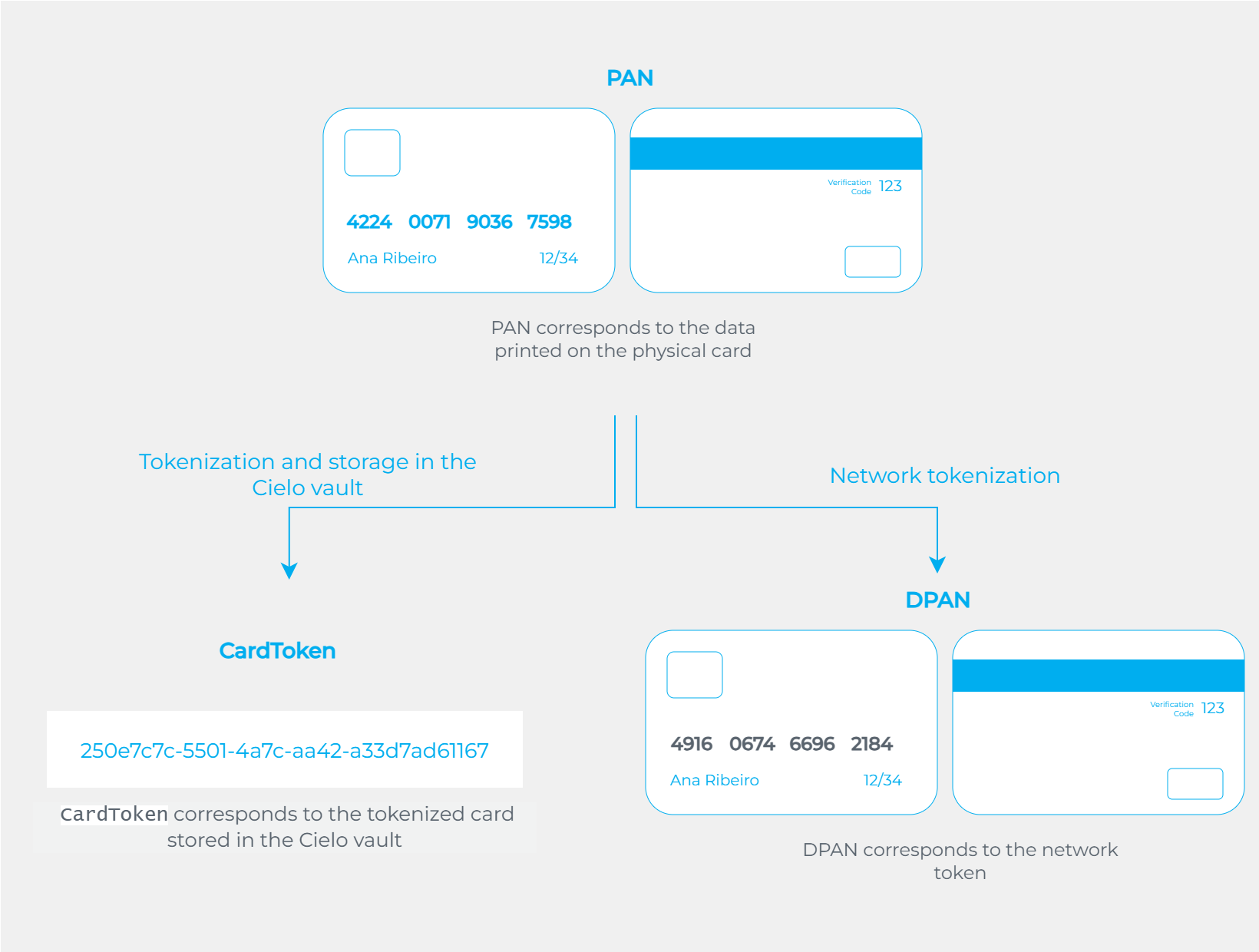Tokenization types
Cielo offers two types of tokenization for credit cards:
- Tokenization with storage in the Cielo vault (Cartão Protegido) : the card data is converted into a
CardToken, which is securely stored by Cielo; - Network tokenization : an identifier provided by the card network, which may or may not be associated with a
CardToken.
If your merchant already has a network tokenization solution, you can create payments via the API E-commerce Cielo using the existing network token. Read more at External tokenization .
The API E-commerce Cielo does not store the card CVV. Your merchant must have authorization from Cielo acquiring to transact without the CVV, or the shopper will need to provide the CVV for each transaction.
Credit card formats in the transaction
Before learning about the types of tokenization, it is important to distinguish the formats in which a credit card can be used in the transactional flow:
Format | Description |
|---|---|
PAN (Primary Account Number) | The actual data printed on the card. |
| A string that represents the set of credit card data in a tokenized way. The |
DPAN (Device Primary Account Number) | The tokenized version of the card at the network, also called a network token. |

What is the difference between tokenization in Cartão Protegido and network tokenization?
Cartão Protegido (Cielo vault)
Tokenization of cards in Cartão Protegido is the secure storage of credit cards in the Cielo environment, certified by PCI DSS. The card data is stored by Cielo and represented by the CardToken; the merchant, in turn, stores the CardToken and uses it in communication with Cielo.
This method is ideal for recurring transactions and one-click purchases, where card data is securely stored and can be reused without the shopper needing to provide card data again for each transaction. This provides a faster and more convenient shopping experience for the shopper, as well as reducing the risk of sensitive card data exposure.
Learn more at Tokenization of cards in Cartão Protegido.
Network tokenization
Network tokenization is the creation of a token in the card network's vault, in a process regulated by EMVco. This token replaces the open card data, creating the DPAN (Device Primary Account Number), which is the card in tokenized format, and the cryptogram, which is a unique code for the DPAN for each transaction.
The network token is used in communication between Cielo and the card network and issuer, and is associated with the CardToken. Thus, the merchant does not need to manage DPANs and cryptograms, as they are already associated with the Cartão Protegido token.
For API E-commerce Cielo clients, the Visa and Mastercard network tokens are enabled for all clients and is transparent, requiring no additional integration.
Learn more at Network tokenization.
Updated 4 months ago